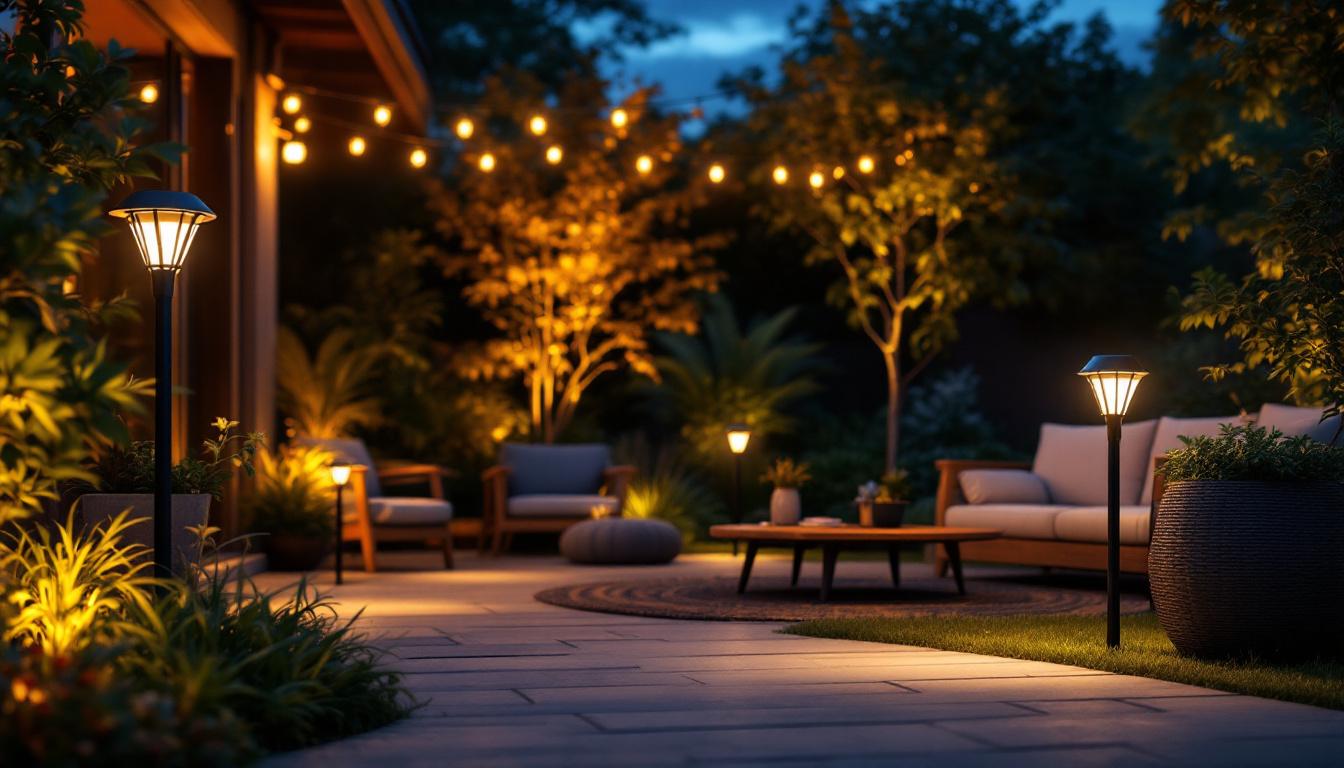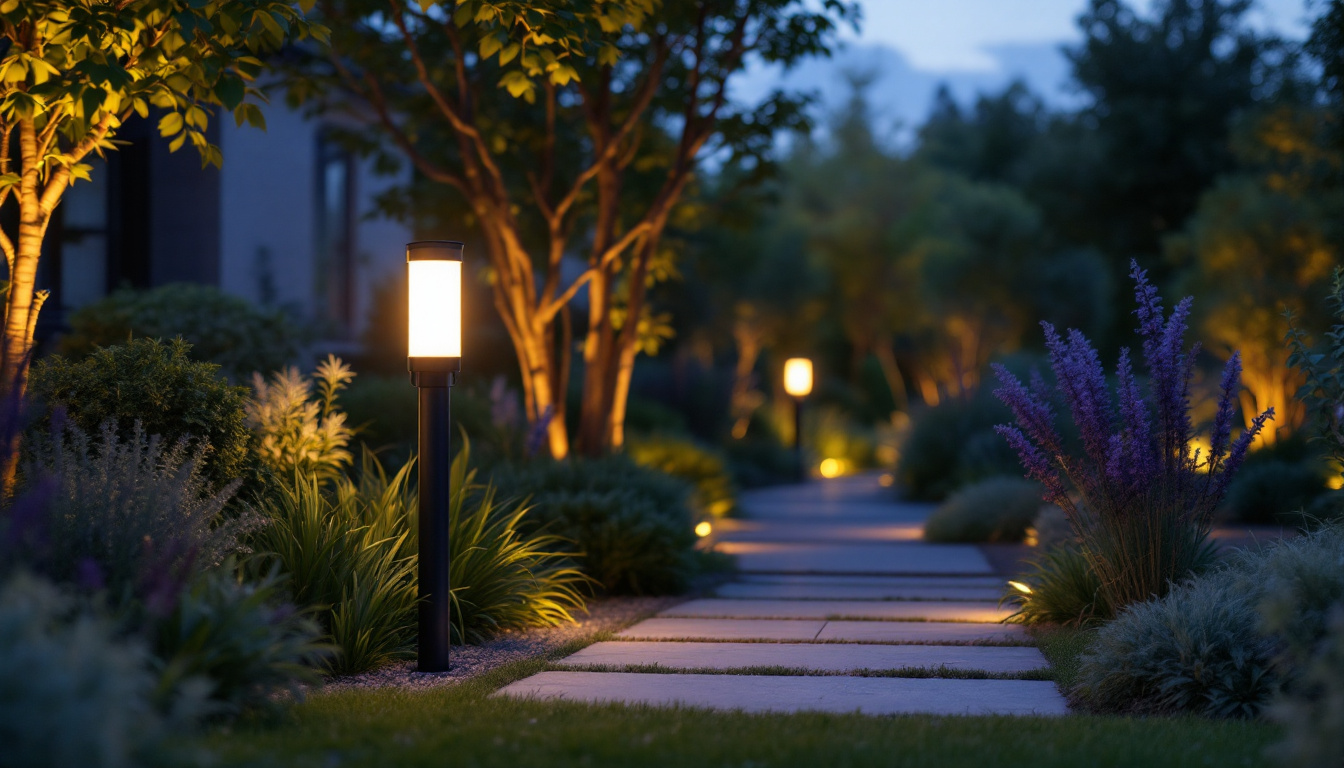
In the ever-evolving world of lighting, understanding the nuances of 120 V light bulbs is crucial for lighting contractors. These bulbs are widely used in residential and commercial applications, making them a staple in the industry. This article aims to provide essential best practices for lighting contractors to ensure optimal performance, safety, and customer satisfaction.
120 V light bulbs are designed to operate on a standard voltage supply found in most North American homes and businesses. They come in various types, including incandescent, LED, and compact fluorescent, each with unique characteristics and applications.
Familiarity with these types is essential for contractors, as it allows for informed recommendations to clients based on their specific needs. For instance, while incandescent bulbs offer warm light and are often favored for their aesthetic appeal, LED bulbs are more energy-efficient and have a longer lifespan, making them a popular choice for modern installations. Additionally, the growing trend towards sustainability has led many consumers to prioritize energy-efficient options, making it crucial for contractors to stay updated on the latest advancements in lighting technology.
The primary types of 120 V light bulbs include incandescent, LED, and CFL (compact fluorescent) bulbs. Each type has its advantages and disadvantages, which can significantly impact the choice made by contractors and their clients.
Incandescent bulbs are known for their warm glow and excellent color rendering, but they consume more energy and have a shorter lifespan compared to LEDs. On the other hand, LED bulbs, while initially more expensive, offer significant savings in energy costs and longevity, making them a wise investment in the long run. CFLs, while more energy-efficient than incandescent bulbs, have a slower warm-up time and contain small amounts of mercury, necessitating careful disposal. Furthermore, advancements in LED technology have introduced options like dimmable LEDs and color-changing bulbs, providing even more versatility for different lighting schemes.
120 V light bulbs are versatile and can be used in various applications, from residential lighting to commercial spaces. In homes, they are commonly found in fixtures such as table lamps, ceiling lights, and outdoor lighting. In commercial settings, they are often used in office spaces, retail environments, and hospitality venues.
Understanding the specific requirements of each application is vital for contractors. For example, in a retail environment, the lighting should enhance product visibility and create an inviting atmosphere, while in office spaces, it should promote productivity and reduce eye strain. Moreover, the choice of color temperature can greatly influence the mood of a space; warmer tones are often used in dining areas to create a cozy ambiance, while cooler tones are preferred in workspaces to foster focus and alertness. Additionally, the integration of smart lighting solutions has become increasingly popular, allowing users to control brightness and color remotely, thus enhancing the functionality and efficiency of lighting systems in both residential and commercial settings.
Proper installation of 120 V light bulbs is critical for safety and functionality. Lighting contractors should adhere to established guidelines to ensure that installations meet both industry standards and customer expectations.
Before installation, it is essential to check the compatibility of the bulb with the fixture. This includes verifying the wattage, base type, and whether the fixture is rated for the specific bulb being used. Mismatched components can lead to overheating, reduced performance, or even fire hazards. Additionally, contractors should be aware of the different types of bulbs available, such as incandescent, LED, and CFL, each of which has unique characteristics and energy efficiency ratings. Understanding these differences can help in making informed recommendations to clients, ultimately leading to better lighting solutions tailored to their needs.
Safety should be a top priority for lighting contractors. When working with electrical components, it is crucial to turn off the power supply before beginning any installation. This can prevent electrical shocks and ensure a safer working environment. Furthermore, it is advisable to use a voltage tester to confirm that the power is indeed off before proceeding with any work. This extra step can significantly reduce the risk of accidents and enhance the overall safety of the installation process.
Additionally, contractors should use appropriate personal protective equipment (PPE) such as gloves and safety glasses. This not only protects them during installation but also instills confidence in clients regarding the professionalism of the service provided. Beyond basic PPE, contractors might also consider using non-conductive tools and mats to minimize the risk of electrical hazards. By demonstrating a commitment to safety, contractors can build trust with their clients, ensuring a positive working relationship.
After installation, it is essential to test the lighting system to ensure everything functions as intended. This includes checking for flickering, dimming, or any unusual noises that may indicate underlying issues. A thorough quality assurance process can help identify problems early, preventing costly repairs or replacements down the line. It is also beneficial to conduct a visual inspection of the installation to ensure that all components are securely fastened and that there are no exposed wires or other potential hazards. This attention to detail can make a significant difference in the overall safety and functionality of the lighting system.
Contractors should also educate clients on how to maintain their lighting systems. Providing guidance on bulb replacement, cleaning fixtures, and recognizing signs of wear can enhance the longevity of the installation and improve customer satisfaction. Furthermore, offering periodic maintenance check-ups can be an excellent service to provide, ensuring that the lighting remains in optimal condition over time. This proactive approach not only helps in maintaining the quality of the installation but also reinforces the contractor’s reputation as a reliable and knowledgeable professional in the field.
As energy costs continue to rise and environmental concerns grow, energy efficiency has become a significant consideration for lighting contractors. Promoting energy-efficient solutions not only benefits the environment but also appeals to cost-conscious clients.
LED bulbs, for instance, consume significantly less energy than incandescent or CFL bulbs, making them a more sustainable choice. They also have a longer lifespan, which reduces the frequency of replacements and the associated waste. By recommending energy-efficient options, contractors can position themselves as responsible and forward-thinking professionals.
Lighting contractors play a pivotal role in educating clients about the benefits of energy-efficient lighting solutions. Providing clear information about the long-term savings associated with LED bulbs can help clients make informed decisions.
For example, illustrating the difference in energy consumption between a traditional incandescent bulb and an LED can highlight potential savings on electricity bills. Additionally, discussing the environmental impact of choosing more sustainable lighting options can resonate with eco-conscious clients.
Smart lighting technology is gaining traction in both residential and commercial settings. Integrating smart lighting solutions into installations can enhance energy efficiency and provide added convenience for clients.
Smart bulbs allow users to control their lighting remotely through smartphone apps, enabling them to adjust brightness, color, and even set schedules. By incorporating these technologies, contractors can offer clients innovative solutions that align with modern living and working environments.
Selecting the appropriate 120 V light bulbs and fixtures is crucial for successful installations. Contractors should consider various factors, including the intended use, aesthetic preferences, and budget constraints of their clients.
When recommending products, it is essential to stay updated on the latest advancements in lighting technology. New products are continually entering the market, offering improved performance and energy efficiency. By being knowledgeable about these options, contractors can provide valuable insights to clients.
Establishing strong relationships with reliable suppliers can significantly enhance a contractor’s ability to provide quality products. Suppliers often have access to the latest products and can offer valuable information regarding performance, warranties, and best practices.
Contractors should take the time to research and vet suppliers, ensuring they align with their values and standards. A dependable supplier can be an invaluable resource, helping contractors stay informed about industry trends and innovations.
Every region has specific codes and regulations governing electrical installations. Lighting contractors must be well-versed in these requirements to ensure compliance and avoid potential legal issues.
Familiarity with local codes can also enhance a contractor’s credibility. Clients are more likely to trust professionals who demonstrate knowledge of regulations and prioritize safety in their work. Regularly reviewing and updating knowledge of local codes is essential for maintaining compliance and delivering high-quality service.
Providing an exceptional customer experience is essential for building a successful lighting contracting business. From the initial consultation to post-installation support, contractors should prioritize client satisfaction at every stage of the process.
Effective communication is key. Contractors should actively listen to clients’ needs and preferences, ensuring that their vision is understood and incorporated into the project. Clear explanations of the installation process, timelines, and costs can also help manage client expectations and build trust.
After completing an installation, contractors should follow up with clients to ensure they are satisfied with the results. This can be done through a simple phone call or email, allowing clients to voice any concerns or questions they may have.
Offering ongoing support can also enhance the client relationship. Providing information on maintenance, troubleshooting tips, and recommendations for future upgrades can position contractors as trusted advisors, encouraging repeat business and referrals.
Feedback from clients is invaluable for improving services and understanding areas for growth. Contractors should actively seek reviews and testimonials, as positive feedback can significantly enhance their reputation and attract new clients.
Encouraging satisfied clients to share their experiences online can help build credibility in a competitive market. Additionally, constructive criticism can provide insights into areas where improvements can be made, ultimately leading to a better overall service.
120 V light bulbs are a fundamental component of modern lighting solutions, and understanding their intricacies is crucial for lighting contractors. By adhering to best practices in installation, energy efficiency, product selection, and customer service, contractors can enhance their reputation and ensure client satisfaction.
As the lighting industry continues to evolve, staying informed about new technologies and trends will empower contractors to provide innovative solutions that meet the changing needs of their clients. By prioritizing safety, efficiency, and customer experience, lighting contractors can position themselves as leaders in the field, ready to tackle the challenges and opportunities that lie ahead.
Ready to elevate your lighting projects with the best in the business? Look no further than LumenWholesale for all your 120 V light bulb needs. We offer an extensive selection of spec-grade lighting products that meet the highest industry standards, ensuring you deliver exceptional quality to your clients. With unbeatable wholesale prices and the convenience of free shipping on bulk orders, you can trust us to provide the value and efficiency you require. Choose LumenWholesale today and experience the ultimate in quality, affordability, and convenience for your next lighting project.

Illuminate your projects with cutting-edge solar path lights.

Illuminate your outdoor spaces efficiently with our comprehensive guide on the best commercial solar lights.

Discover how the Rab 120 Volt Garden Lighting Fixture is revolutionizing outdoor lighting with its innovative design and easy installation.

Discover how recessed light adapters are revolutionizing the workflow for lighting contractors.